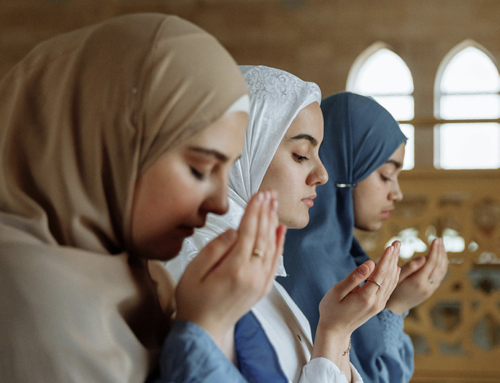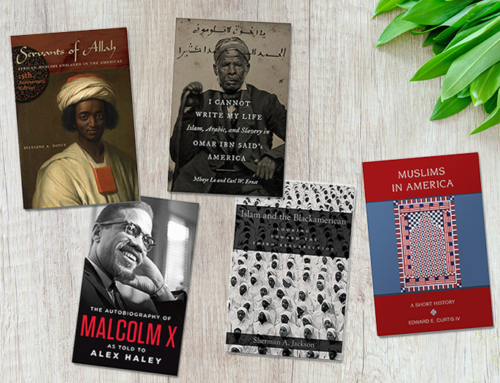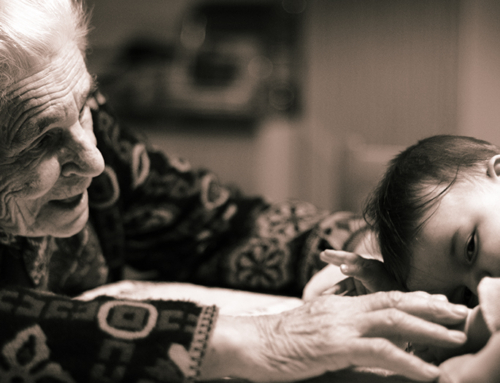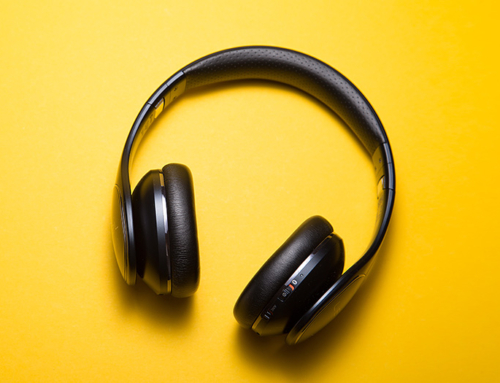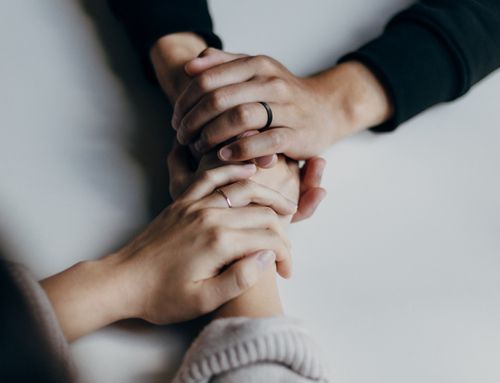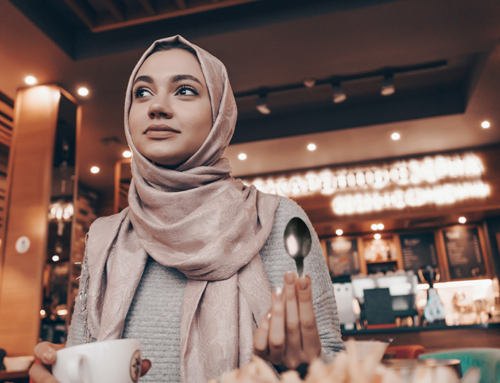Interview By: Melissa Barreto
Candice Elam’s Journey to Islam
Candice Elam, DNP, FNP-C, accepted Islam 19 years ago. Like many converts, her choice meant practicing a new religion, navigating changing family dynamics, and learning how to maintain her own identity in the wider, and often ethnocentric, Muslim communities. This is her story and the lessons she shared with me.
How Were You Introduced to Islam?
I knew of Islam from various streams which I think is true for a lot of Black Americans in the New York metro area and a lot of other metro areas. My mom is from Harlem. Black American Muslims and Black American non-Muslims in New York shared a space, especially in the realms of art, business, and social justice. There was mutual respect for one another.
Black American Muslims are all over Black American art forms and are deeply entrenched in Black American business and history. I remember growing up hearing recordings of Louis Farrakhan and Malcolm X and I knew they identified as Muslim or Islam-adjacent. Being Muslim within the Black community is being integrated with the Black community and is a completely normal experience.
As a Muslim who is Black within the Black community, there’s certainly a religious difference between you and others around you, but it is not the same minoritized experience as being a Muslim in the wider American world. It also wasn’t something that took away from somebody’s Blackness. In the same way, being Muslim takes away from Americanness, that’s not the case with Blackness and Muslimness.
Conversely, though, I also knew South Asian Muslims who were not particularly integrated within the surrounding community. They had their enclaves and their places where they went, or they might have had a business in the neighborhood, but they weren’t from the neighborhood.
The line between Muslims and non-Muslims within the Black community is hazy because racial identity is very strong. Whereas the line between non-Black Muslims and the communities they exist in is pretty sharp.
What Was it About Islam That Made You Want to Learn More?
I wanted to understand Islam within the context of the 9/11 terrorist attack. I was very moved by tropes about women in and from the Middle East and South Asia being oppressed by certain practices that were ostensibly Islamic.
Around 2003, there was a level of jingoism that existed in the US where anything that would make Islam look bad was the justification for going to war. Looking back, feminist language was co-opted for a very nationalistic and anti-woman mission.
The hijab was and still is a very symbolic thing. Then, it symbolized the oppression of Muslim women. Since then, a lot of us have chosen to wear the hijab and to live this way; we’re not going to have anyone tell us that we’re oppressed. But it’s still a symbol. Now, within the last few years, if you see an advertisement for a company there’s a hijabi on it, maybe off-center, but she’s there. So now, we’ve become a symbol of equity and inclusion. But a mere 15 years ago we were a symbol for oppressed, voiceless women.
It was during this time that I would debate with the kids from the Muslim Student Association at the dawah table. I had this jingoism in me. A lot of people had the same message: Muslim countries are horrible places because Islam is a defective belief system and we need to rescue the world from it because their existence makes all of us unsafe. The MSA would invite me to their events and I would carry on.
In March 2003, I received a copy of the Quran. I started reading it and I didn’t get it. I approached it like I would have the Bible. The Bible is chronological. The first chapter literally starts with “in the beginning” and it means the beginning of creation. The Quran is not like that. There is no chronicity to it and I didn’t know that there was a thing called the Sunnah or the Hadith.
But there were flashes of things that I could recognize. I wanted to read Surah Nisaa (The Women) and it went over my head. I jumped to the chapter on Mary, because I recognized her, and that chapter was beautiful. It was a version of Mary, that even though I never saw that version of her in Christianity, I could identify with.
Specifically in Catholicism, Mary was engaged to Joseph and he was considered the earthly father of Jesus. But then she turns up pregnant and somehow convinces Joseph that she hasn’t been unfaithful. Then they both go off and Jesus is born. That version never made sense to me because within the context of their religion, a woman who is engaged and brings evidence of adultery, at that time, would have probably been stoned.
In the Islamic version, there is this miracle of Jesus, peace be upon him, speaking up on his mother’s behalf as an infant to clear her name. And that little bit makes the whole story make sense. Teachings like this are what really softened my heart toward Islam.
I began inquiring about Islam to expose what I perceived to be the defects in it that led to terrorism, the oppression of women, and the overall backwardness that I saw in the press. Then, as I’m reading the Quran to find fault, I found the answers to the questions that I had as a Christian. How do I believe in God? How do I believe in Jesus? How do I believe in Mary? Especially for someone who firmly believed that there really is only one God.
I had been trying to find a way to be a better and more faithful Christian, and I found that way within Islam. I found the way that I could worship only one God, the God that created Jesus, where I could revere and honor his mother without resorting to praying to them or giving them divine attributes that I was never comfortable with.
When Did You Decide to Become a Muslim?
Around August 2003, it was pretty clear that I was going to become Muslim. I shifted my thinking away from trying to find fault to trying to find out how to live my life as a Muslim. I learned more, read more, and spent more time with Muslims. Two sisters, in particular, helped to teach me about the Prophet Muhammad, peace and blessings be upon him, and different aspects of Islam. By November 2003, I was ready.
I woke up on Eid Al-Fitr in 2003, without even knowing that it was Eid, called my friend, and told her that today was the day. My friend told me about Eid, invited me to the mosque, and brought me this beautiful green, full-length skirt, and a matching hijab.
Afterward, I went home still dressed like that. My mom was coming out of the house as I was going in – she knew I was interested in Islam – she kissed me on my face, told me I looked beautiful, then went on about her business and that was that.
How Did Your Loved Ones React to You Becoming Muslim?
My mom was cool with it from the start. Again, she’s a Harlemite and she grew up in spaces where Muslims were. For her, a Muslim was just another type of Black person.
And my mom to this day says, “As long as you believe in God and devote your life to a higher power, that’s what matters.”
I’m fortunate that my family didn’t force me to choose. But converts can make a lot of mistakes. People who are novices at anything make a lot of mistakes.
I got into a lot of arguments with my dad who was not on board initially. He was moved by the same press that made me jingoistic against Islam and there was no backing him down from that position. At the time, I was learning about Islam from videos of speakers who were famous for debating Christians and so my approach to responding to my father was to debate him.
To this day, I will always have tremendous respect for those speakers; I learned so much from them. But I know now that their approach wasn’t appropriate for me as a new Muslim, living in a house with my parents who were Christian, or trying to justify my conversion to my largely Christian social circle. There were blessings in learning what they had to say, but when I employed that methodology, it did damage.
In late 2004, I married and was living with my husband. I was debating less but there was a period of tension because of how quickly we married and I was only 22. I realize now it wasn’t easy for my parents. They felt rushed to do something they probably had misgivings about.
As my dad got to know my husband [who is also a convert], the kind and sweet man that he is, somehow his heart softened towards Islam. I think he was impressed with the kind of man my husband is. He lives like someone who genuinely fears Allah. He is the same person in private as he is in public. For a man to see his daughter happily married to another man, I think that was the grease that helped release the tension. His animosity towards Muslims dissipated as he was able to see Muslims in action when I established our home.
Many times now my father has told me, “Candice, I’m proud of the family you’ve raised.”
What Comforts Have You Found in Islam That Have Helped You to Keep Moving Forward?
The community of converts that we have around us has been a tremendous source of comfort.
I’ve heard it said that “I became Muslim despite the Muslims not because of them.” What is meant is that many people who are Muslim can leave you with a sour taste in your mouth. The Muslims who have become my extended family, for the most part, are converts and their children who are born Muslim.
When I was a new Muslim, I stopped in a liquor store once to buy a bottle of water and the woman behind the counter was a South Asian hijabi playing Quran in the background. I was so upset. Muslim people have liquor stores in the hood, or they have furniture stores that issue predatory loans that keep people in debt, or restaurants with bulletproof glass where unhealthy, low-quality food is being sold to families. They come to the hood, they make their money, and they take it back to their communities and lavish it upon their mosque. They have an extractive presence in Black and Brown communities.
Meanwhile, the Nation of Islam, this Islam-adjacent group, lived in the community. They trained and encouraged people to find what they did well to build thriving businesses for the community. It was about making sure the dollar stays in the community.
Within Black Muslim communities, that whole idea of taking care of home first and taking care of the neighborhood, I feel that among the community of converts that I’m close to. But I don’t necessarily get that feeling of reciprocity from other branches of the Muslim community.
Many times I’ve seen the beauty of Islam through others who have come to Islam and it makes it easy for me to be Muslim because I’ve found my people.
I don’t even usually talk about how I became Muslim.
I often have the feeling that people who are born Muslim ask us about this so that they can feel good about themselves. They want to hear about the salacious details of all the rotten things our families did to us when we became Muslim, how we were rejected, or how bad we were. People are attracted to that story. They want people to convert but then they’re not there for you when you do. And that’s why people come into Islam and turn right around and run in the opposite direction.
I found a community where I did not feel that predation. The people within the community I landed in understood me and respected me, and I was not treated like a spectacle, like, “oh look at this convert; watch her read the Quran.” I felt like a peer and a member, not a token.
I don’t think many people who were born Muslim realize how they tokenize us. In saying that we have something in common, they are still saying that they’re different from us. A lot of people who were born Muslim that I love and respect, when they ask me how I became Muslim, I try to highlight to them the many other people who identify as Muslim and try to practice Islam, and I try to point out that me becoming Muslim is not all that different from other Muslims who choose to practice Islam. Because they’ve got loads of cousins, siblings or maybe even their parents, who made a different choice.
So What Made You Choose to Try?
It’s really the same thing that made me become Muslim.
How Have You Spent Your Time Since Coming to Islam? And How Has Islam Tied Into Those Pursuits?
Early on I worked as a teacher in an Islamic school. There was a lot of growth there and I got a lot out of being there personally and spiritually. I had kids, left the workforce for three years, and then went back to teaching. Then I hit a crossroads where I could choose between getting my master’s in teaching or doing something different.
I had this curiosity about becoming a nurse that I knew I would always have if I didn’t check it out, so I chose to do something different and became a nurse. I learned that the qualities that you would want in a teacher are more or less the qualities you would want in a nurse.
The character of the work is the same, the tasks are different.
It’s an honor to care for people. The amount of trust people give you: they don’t know you or your character but they trust you to do what you’re supposed to do. It’s an amanah, an honor and a blessing to be there for people on the worst and best days of their lives.
I approach it knowing that Allah sees what I’m doing and that Allah knows my intentions. I understand that I’m taking care of someone that belongs to Allah and I have to honor that. Every single day I have to be deserving of it in Allah’s eyes and be faithful to it.
What’s One Piece of Advice You Would Give to Someone Who Recently Accepted Islam?
There’s this tremendous pressure to assimilate to the culture of the mosque where you reside. Those pressures are well-intentioned but we have to resist that ethnocentricity in our mosques and our organizations.
These are cultural interpretations of Islam, but they are not Islam. It’s just Islam filtered through the prism of their cultures. Whatever your culture is, find a way to filter it through the prism of Islam. There’s no need to lose your culture to become a Muslim and practice as a Muslim.
Islam is our filter. Bits of our culture can come through that filter and be just as Muslim as what they’re doing in the Middle East, Pakistan, West Africa, or South East Asia.
Your actions are Islamic if they are in accordance with the laws of Islam, not just the cultural interpretation of some Muslim majority country. You don’t have to lose your culture. And you can enjoy other people’s cultures without having to reject your own.
To learn more about Candice and her work, please visit https://www.nursingcurrent.com/
—
Melissa Barreto is a convert to Islam and homeschooling mother of five children. She is the Co-Founder of Wildflower Homeschool Collective, a homeschool organization based in Northern New Jersey.
Got Questions?
We have Answers. Get in touch now.



